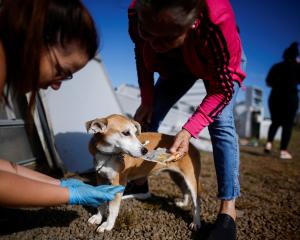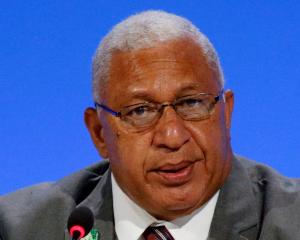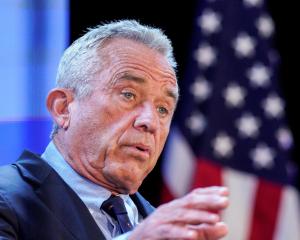Despite the return of a unified Catalan separatist movement, acting Prime Minister Mariano Rajoy's proposed grand coalition of centre-right and centre-left parties to defend against the possible break-up of Spain has failed to gain support.
Ahead of the first session of congress on Wednesday, the formation of a government remains at a stalemate following last month's inconclusive election that left the ruling People's Party (PP) with the most seats but without a majority.
The pressure on national politicians to reach a deal rose on Sunday (local time) when Catalonia's parliament swore in a new separatist leader, putting the region's drive to break with Spain over the next 18 months back on track after months of political deadlock. .
But Socialist leader Pedro Sanchez reiterated on Monday he would not back Rajoy, who says a German-style "grand coalition" of the Socialists, his centre-right PP and newcomer centrists Ciudadanos would provide stable rule to an economy with the second highest number of unemployed in Europe.
Instead, Sanchez has proposed a coalition of "progressive forces", but a major sticking point is the promise of leftist newcomer party Podemos to allow an independence referendum to go ahead in Catalonia, which he himself has ruled out.
Artur Mas, who stepped down on Saturday as Catalonia's head but remains the chief of his Democracy and Liberty (DL) party and one of the most powerful political figure in the region, hinted he could be willing to support a Socialist-led national coalition in a bid to block Rajoy from a return to government.
Bond markets reacted negatively to the Catalan parliament swearing in Mas's fellow separatist Carles Puigdemont as leader, with 10-year government bonds up 1.9 basis points to 1.74 percent.
Rajoy has taken a harsh stance against Catalan separatism since taking power in 2011.
He refused to allow a referendum in Catalonia in 2014 and has rejected any change to the constitution that would recognise Catalonia as a nation, or to offer the wealthy northeastern region a more a favorable tax regime.
"We don't want another PP government or a coalition of the PP and Ciudadanos," Mas told a party meeting on Sunday, without referring to the Socialists.
An agreement with the Socialists could see the delegates from Mas's party in the Spanish congress join a broad coalition with anti-austerity party Podemos and other regional forces to reach a majority of seats.
But he warned: "Don't read too much into this, it's not as if we are willing to support any political party."
In a possible sign of his willingness to woo Mas, Sanchez repeated on Monday his proposal to reform the Spanish constitution and shift the country towards a more federal political system.
"We want to leave behind the stagnation and separatism," he said at a news conference. "We say 'yes' to constitutional reform but 'no' to breaking the laws that govern our democracy."












